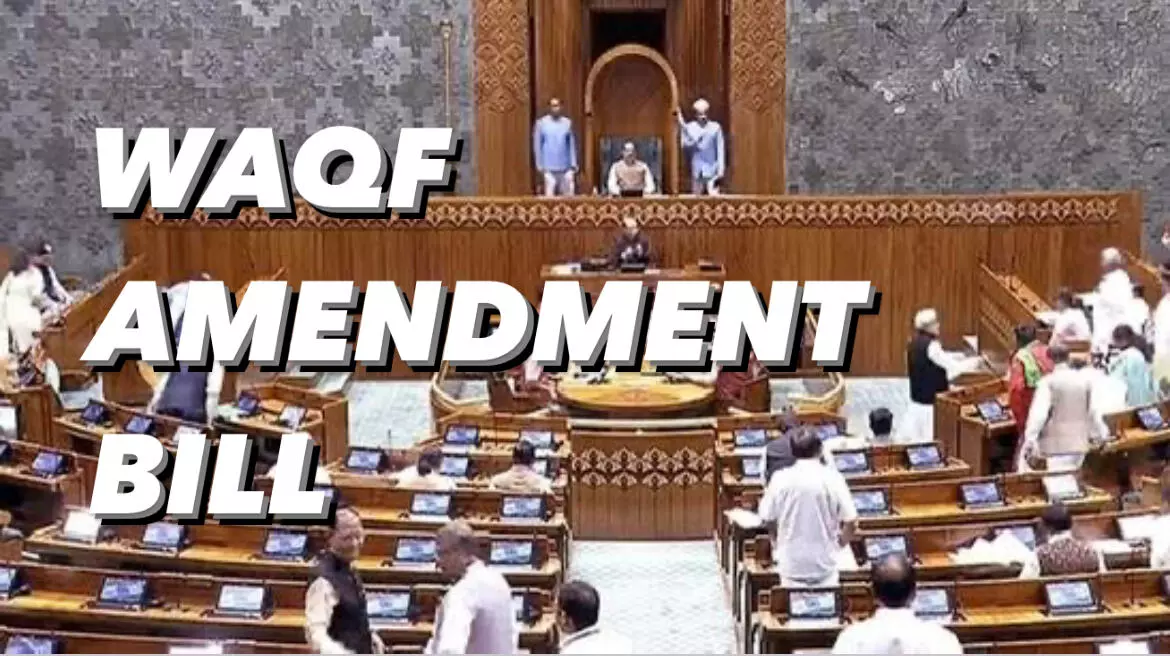Understanding Waqf Amendment Bill: Will it spur accountability and inclusivity?
Waqf Amendment Bill is to bolster accountability and transparency in functioning of Waqf Boards and include women in these bodies
By B.V.Seshagiri Advocate
Waqf Amendment Bill to be introduced in Parliament
Hyderabad: Government of India is poised to introduce a bill to amend the Waqf Act of 1995 in Parliament. This move aims to bolster accountability and transparency in the functioning of Waqf Boards, while also ensuring the mandatory inclusion of women in these bodies. The initiative responds to long-standing demands for more equitable and transparent governance of Waqf properties.
Key Amendments Proposed:
The proposed Bill, which has recently been reviewed by the Cabinet, seeks to revoke several clauses of the existing Waqf Act. These repeals are primarily designed to curtail the Waqf Boards’ arbitrary authority, which currently allows them to claim any property as Waqf without mandatory verification.
1. Mandatory Verification of Property Claims: The Bill outlines around 40 amendments, one of which mandates that Waqf Boards must undergo mandatory verification for all property claims. This aims to enhance transparency and reduce disputes over land ownership.
2. Inclusion of Women in Waqf Boards: The Bill proposes revisions to Sections 9 and 14, which will alter the composition and functioning of Waqf Boards to incorporate representation for women. This change is expected to enhance inclusivity and ensure that the boards reflect a broader spectrum of the community they serve.
3. Involvement of District Magistrates: To prevent misuse and settle disputes, the Bill suggests involving district magistrates in the oversight of Waqf properties. This measure is intended to provide an additional layer of scrutiny and accountability.
4. Registration of Waqf Properties: Another significant amendment is the requirement for Waqf Boards to register their properties with the District Collector's office. This will enable proper evaluation and documentation of Waqf assets.
The Third Largest Land Bank in India: A notable aspect of the Waqf properties is their sheer scale. With approximately 8,70,000 properties spanning around 9,40,000 acres of land, the Waqf Boards collectively hold the third-largest land bank in India. Despite this vast land bank, the revenue generated by these properties is estimated at only 200 crore per annum, highlighting significant inefficiencies and potential misuse.
The current structure of the Waqf Boards has led to several disputes and claims of misuse. For instance, in September 2022, the Tamil Nadu Waqf Board claimed ownership of the entire Thiruchendurai village, predominantly Hindu. Such instances underscore the need for rigorous verification and accountability mechanisms.
Historical Context and Need for Amendment: The Waqf Act of 1995 regulates ‘auqaf’—assets dedicated and notified as Waqf by a wakif (the person who dedicates property for purposes recognized by Muslim law as pious, religious, or charitable). Amendments in 2013 under the UPA government granted Waqf Boards broader powers, which have since been contentious.
Addressing Community Concerns:
The amendments are driven by widespread concerns within the Muslim community over the arbitrary powers of Waqf Boards. Several representations from Muslim intellectuals, women, and sects such as Shia and Dawoodi Bohras have highlighted the need for changes in the existing law. A preliminary review of laws in Islamic nations like Oman and Saudi Arabia revealed that these countries do not grant such sweeping powers to a single entity, suggesting that India’s Waqf governance structure is an anomaly.
Conclusion:
If enacted, the Waqf Act Amendment Bill could reshape the governance and regulation of Waqf properties in India, promising greater accountability, transparency, and the inclusion of women’s voices. However, despite these ambitious goals, there is substantial skepticism about whether these changes will be effectively implemented or if they will address the entrenched problems within the system.
As the Bill progresses through Parliament, it is essential to critically assess its reception and the real-world impact on Waqf property management. While the Bill's intentions are commendable, the effectiveness of its reforms remains questionable, and the potential for genuine transformation should be approached with cautious optimism.